The upcoming Brazilian election is a significant moment, as an election is for any country. The challenge during election years is always to rise above the political circus and the media noise, and to extrapolate how the outcome of any election affects your interests. In this case, how the potential outcomes of the Brazilian elections will affect the agriculture industry.
Representing everything attractive and challenging about long-term higher returns likely to come from emerging markets, the country with the 8th largest global GDP has experienced significant growth in the agricultural sector. Expected to become the world’s largest foods exporter by 2020, the agriculture and agribusiness sectors have been the biggest contributor to the economic recovery of Brazil, now representing 23.5% of GDP, the highest level in 17 years. The most recent harvest report in Brazil (16/17) is projected to be 238 million metric tons, more than double the harvest just ten years ago.
A new presidential era is upon Brazil, here we break down the five main candidates battling to lead the country, and what can be expected for the agriculture industry should each of them become President:
Luiz Inacio Lula da Silva – Left wing Worker’s Party (PT)
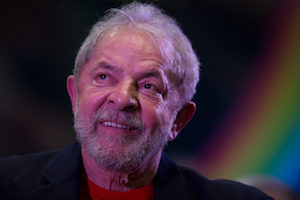
Lula presided over Brazil during the years of economic growth between 2003 and 2010. Mired in controversy, he is currently imprisoned for corruption. The UN human rights committee ruled that Lula cannot be banned from running until all his appeals procedures have terminated. However, Brazil’s top electoral court has ruled that he cannot run as a candidate due to his corruption conviction. The Lula saga continues…
- Lula’s previous term in office was marked by social programs and the fact that he uplifted Brazil from poverty. Despite entering politics as a firebrand, Lula did not meddle in areas such as economic policy.
- A re-election of Lula to President, would not solve the overly complicated bureaucracy and complicated tax structures of Brazil, but it would also not deliver too many surprises. That stability would allow the Brazilian agribusiness to continue on its current trajectory.
Jair Bolsonaro – Right-wing Social Liberal Party (PSL)
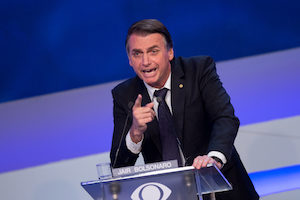
The ex-army captain appears to be one of the real frontrunners when Lula’s current situation is considered. Bolsonaro is part of the conservative right-wing political movement that is taking place across the globe. His pledges include loosening gun controls and selling some state-owned companies.
- Bolsonaro has attracted support across Brazil’s farm belt, where he is expected to receive financial funding for his campaign. One of his promises is to strengthen ties with the United States as a trading partner which would open the door to foreign investment.
- Bolsonaro as President would very likely aid both FDI into Brazil and also exportation of Agricultural products out to the West.
Marina Silva – Sustainable Network Party (REDE)
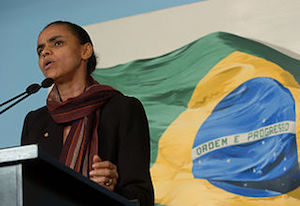
Former Minister of Environment for Lula (2003-2010), Marina was born to a family of poor rubber-trappers in the Amazonian state of Acre. Having finished 3rd in the last two elections, she now promises to control public spending and establish a “necessary state”.
- As Minister of Environment, she clamped down on illegal deforestation in the Amazon rainforest and established the Amazon Fund, to prevent greenhouse gas emissions through rainforest conservation.
- Silva would champion sustainable agriculture and there is no doubt that she would increase domestic demand for organic and sustainable agriculture inputs, which would in turn be a great boost to our project.
Ciro Gomes – Democratic Labor Party (PDT)
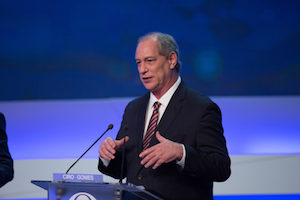
A former governor in Ceará, where our projects are located. Although Gomes’ rhetoric is considered to be leftist, he has refused to align himself to the left.
- Gomes plans to combat inequality and has the potential to follow a similar path to Lula, in order to uplift the country from poverty.
- Much of the same stability as Lula, a Gomes President isn’t expected to ease the bureaucracy or initiate much needed simplification of tax structures, yet the Gomes family is business savvy and consistent.
Geraldo Alckmin – Brazilian Social Democratic Party (PSDB)
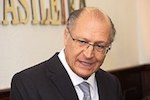
Co-founder of the PSDB, Alckmin has served four terms as governor of São Paolo, where he oversaw the strongest state economy in the country (2001-2006, 2011-2018). Considered one of the leading candidates alongside Bolsonaro, he proposes cutting corporate taxes and allowing rural residents to carry guns.
- Alckmin’s economic record makes him a strong candidate who would encourage investments and open the door to foreign projects. He is expected to be backed by the middle class and the business community.
- Apro-business Alckmin President would greatly ease the bureaucracy burden that business in general, including agribusinesses such as ourselves, suffer with. This simplification would both aid domestic business and encourage FDI.
We hope that the above brief summary, utilizing our on the ground presence in Brazil, serves as a glimpse into the Brazilian political arena. Brazil is a huge 200 million+ population country. The reality remains that in modern-day Brazil, absolutely nothing changes fast. More often than not, it is held back by its enormous amount of bureaucracy. This is often frustrating; however, it does also create a large amount of stability, in a region of the world that often lacks it.
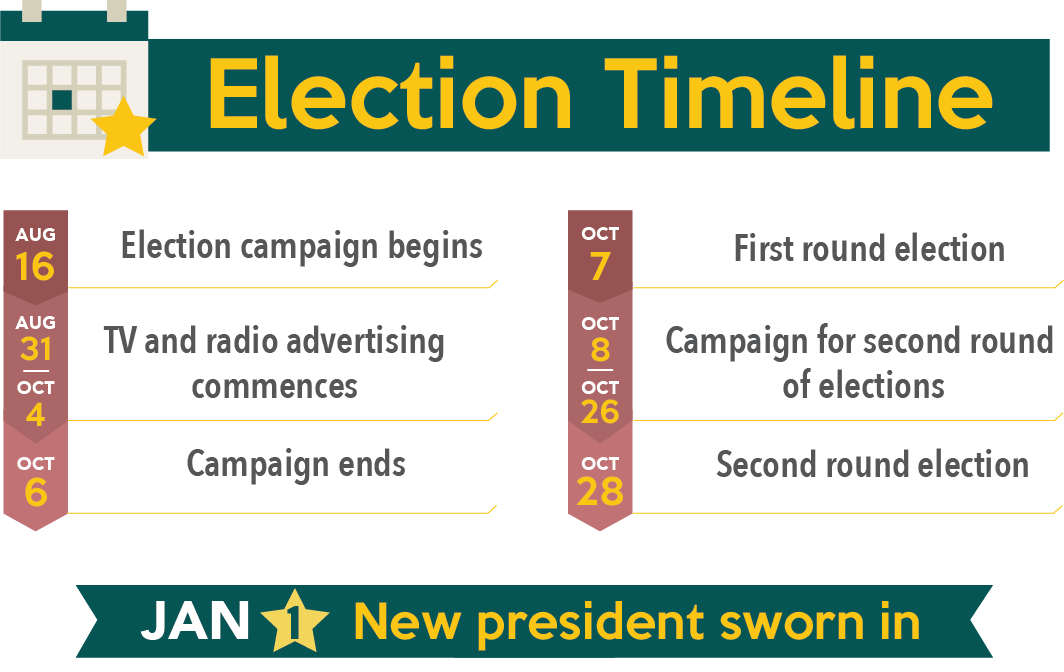
Brazil remains a country with an abundance of potential for agricultural projects and investments:
- World’s 8th largest economy
- 3rd largest agricultural exporter and 4th largest food product exporter
- Recipient of 25% of global FDI (5th globally), largest in Latin America
- Increased agricultural production by over 400% in last 20 years
- Agriculture remains the outperformer sector of the industry, with positive year on year growth, despite recent economic difficulties
The upcoming Brazilian election will be a key moment for the country to improve upon the development made over recent years and focus on the necessary structural reform required to propel the country forward. Although the election is set to be one of the most competitive to date, it is to be expected that the new president sworn in on the first day of 2019 will herald a new dawn for the ‘sleeping giant’ of Latin America, where an asset-backed agricultural project like ours offers safety and diversification.
We place ourselves ahead of the curve by finding the future trend rather than waiting for it to happen and missing the opportunity. A rising global population will inevitably look to Brazil to fulfill the increasing need for mankind’s most fundamental resources. Our agricultural revolution taking place through our large-scale neem projects will help improve the standard of living around the world, securing long-term returns for those involved, while ensuring a safe and sustainable food production system for future generations.
At the forefront of sustainable agriculture in Brazil, Primal will play an integral role in the industry’s future as the world looks towards Brazil to satisfy growing global food demand.